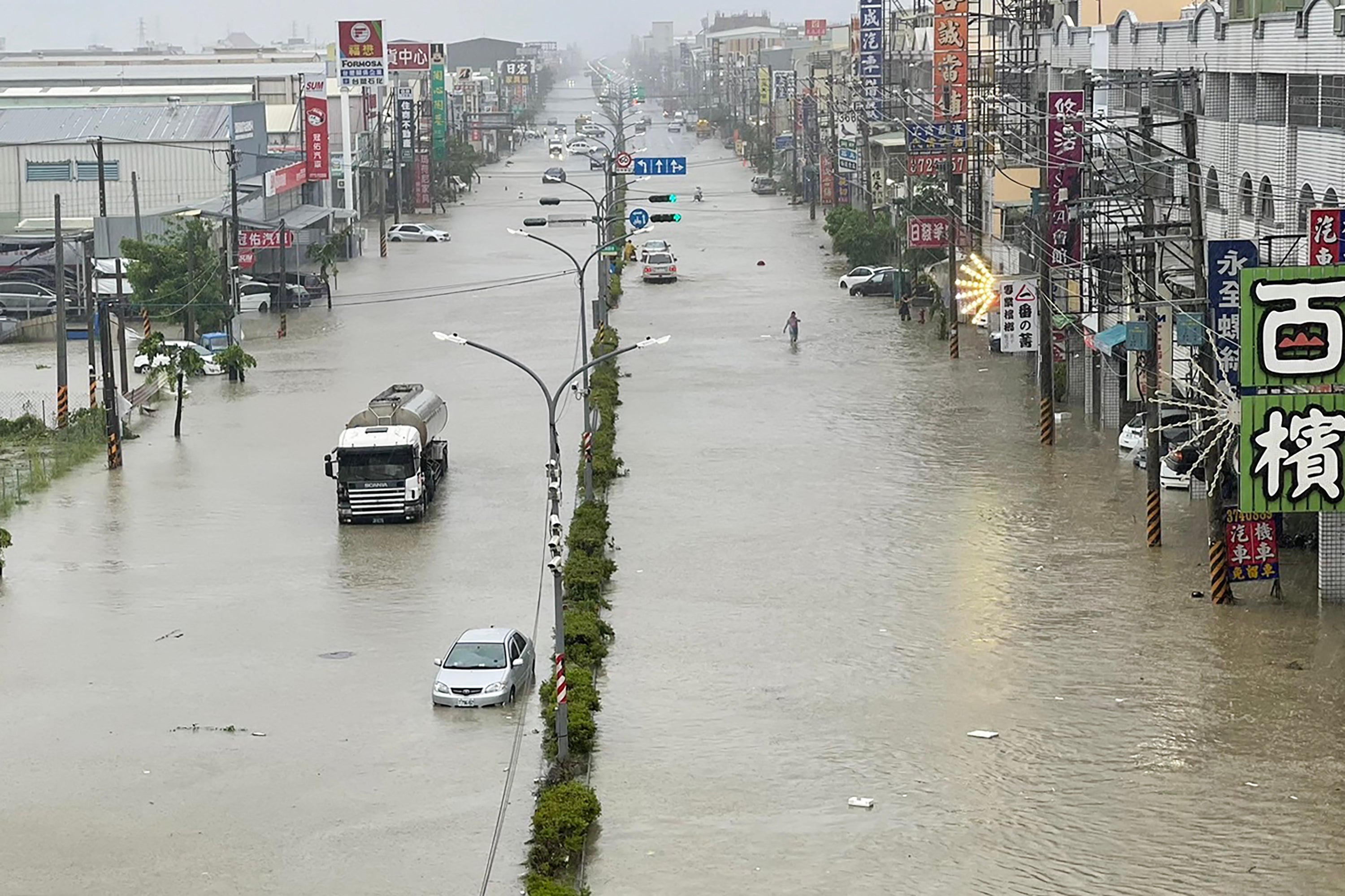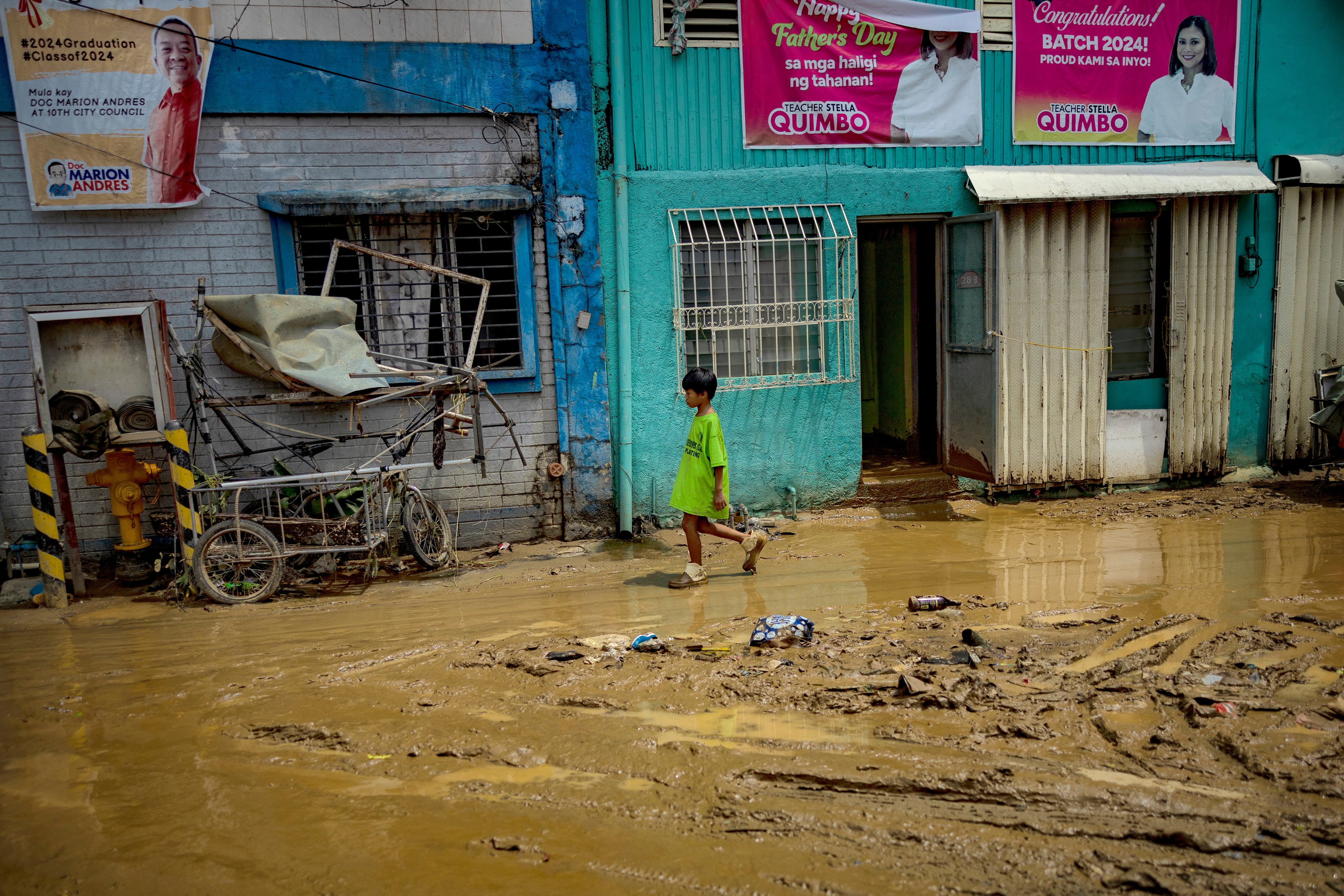Typhoon Gaemi: Everything we know about the strongest storm to hit Taiwan in eight years
Nearly 150,000 people relocated in China’s Fujian as typhoon approaches

Your support helps us to tell the story
From reproductive rights to climate change to Big Tech, The Independent is on the ground when the story is developing. Whether it's investigating the financials of Elon Musk's pro-Trump PAC or producing our latest documentary, 'The A Word', which shines a light on the American women fighting for reproductive rights, we know how important it is to parse out the facts from the messaging.
At such a critical moment in US history, we need reporters on the ground. Your donation allows us to keep sending journalists to speak to both sides of the story.
The Independent is trusted by Americans across the entire political spectrum. And unlike many other quality news outlets, we choose not to lock Americans out of our reporting and analysis with paywalls. We believe quality journalism should be available to everyone, paid for by those who can afford it.
Your support makes all the difference.Typhoon Gaemi, the strongest storm to hit Taiwan in eight years, swept through the northern part of the island on Thursday, killing three people, injuring hundreds and causing widespread flooding.
It also caused power outages that reportedly affected half a million households.
The typhoon brought heavy rainfall, strong winds and a hazardous storm surge. It made landfall in Yilan county with sustained winds of up to 205kph, equivalent to a category 3 major hurricane in the Atlantic.
Gaemi is projected to cross the Taiwan Strait on Thursday and make landfall in China’s Fujian province, unleashing strong winds and heavy rain in an area already suffering from weeks of severe weather and flooding.
A cargo ship sailing off the southern city of Kaohsiung sank when Gaemi struck Taiwan, prompting a search for its nine crew members.
“We expect that the impact of the typhoon will be extended to four days until Friday,” Taiwan’s weather bureau chief Cheng Jia-ping said.
The island’s Central Meteorological Agency issued a typhoon warning for the entire island and president Lai Ching-te advised people to avoid travel as much as possible.
Nearly 8,000 people have been temporarily relocated across the island, reports said.
Li Li-chuan, 55, saw the roof of her restaurant blow off in the northeastern city of Suao.
“I was frightened,” she told Reuters. “It was the strongest in years. I was worried that the roof would hit other people.”
Gaemi also forced the military to modify the annual Han Kuang War Games. The exercises, the largest of their kind, are a key component of Taiwan’s military preparedness against potential threats from mainland China.

In the Philippines, meanwhile, an oil tanker sank in the Manila Bay after encountering huge waves. The coast guard was reportedly working to determine whether the vessel was leaking oil, in what could be a major spill, after it rescued 16 of the 17 crew members in a nighttime operation.
The death toll from Gaemi, known locally as Carina, has risen to 22 in the Philippines due to drownings and landslides. Rescue and cleanup operations are ongoing, with three people still missing.
Though the typhoon did not directly hit the Philippines, it intensified monsoon rains, leading to widespread flooding in and around the capital Manila.

President Ferdinand Marcos Jr said over 770,000 people have been affected by the typhoon and the monsoon in the southern regions of the country.
He said 4,500 emergency personnel were on standby to assist with search and rescue work.
As the typhoon moved towards Fujian in China, it continued to bring heavy rain and disruptions, including flight and train cancellations, state media reported.
Authorities issued a red storm alert and activated the highest level of emergency response across the province. They also evacuated offshore construction projects and called ships back to shore.

Although weakened, Gaemi is forecasted to make landfall in China on Thursday, with sustained winds ranging from 145 to 160 kph, comparable to a strong category 1 or low-end category 2 hurricane.
Meanwhile, north China is experiencing heavy rainfall from summer storms around a separate weather system, Reuters reported.

In Fujian, approximately 150,000 people, primarily from coastal fishing communities, have been relocated, according to state media. In Zhoushan, Zhejiang, officials suspended passenger waterway routes for up to three days as gale-force winds intensified.
In Japan, authorities in Okinawa’s southern island region have advised residents to “exercise strong vigilance” due to storms, high waves, and flooding.
Additional reporting by agencies.



Join our commenting forum
Join thought-provoking conversations, follow other Independent readers and see their replies
Comments